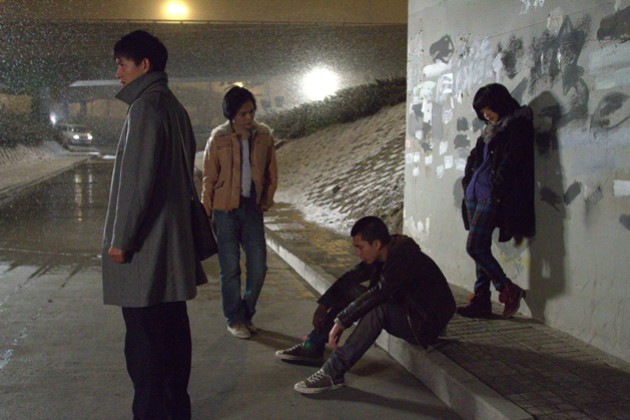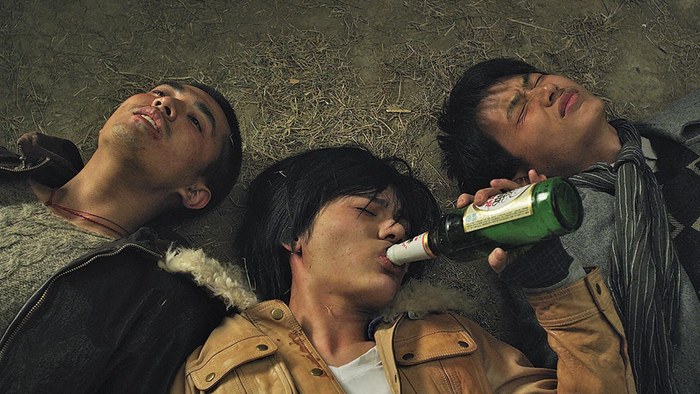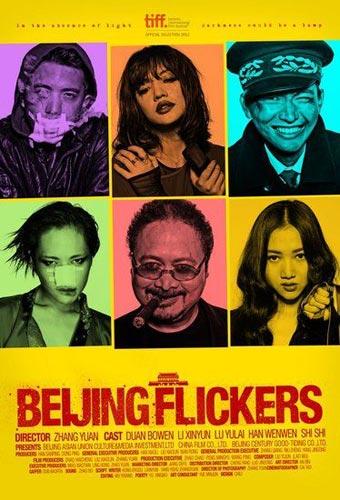By Ivy Teng Lei
As an immigrant myself, Beijing Flickers epitomizes the struggles of an immigrant’s dream. One on hand, we see the reality of a tightly heightened ceiling but ahead of us are blurry few of those who actually made it.
Director Zhang demonstrates the disparity amongst the social classes in one of the world’s largest and fastest growing city in China, Beijing, and attempts to broaden our perception of its glamour to what it means to the daily life of its “citizens.” While the controversial film is prohibited in China, many of the sceneries may very much be a typical day—a drunken night at the bar and finding yourself in a strange place the next morning, in this case, the hospital.
Waking up in the hospital after eating the glass cup that originally held his liquor, then being forced out because he couldn’t pay the bill and finally, losing his shoebox-sized apartment after the city had decided to reconstruct the entire area. For San Bao, the lead of the film, it meant more than just another drunk night, it was the beginning of a self-inflicted mute act and acceptance of societal chaos and a hint of romantic tragedy.
Partnered with Museum of Modern Art as their Global Lens of 2013, Beijing Flicker quickens its audience to contrast the truth behind Beijing’s magic, and its speedy and vivid international presence, when the growth of the city surpasses the quality of individual lives that sustains it.



I like Beijing